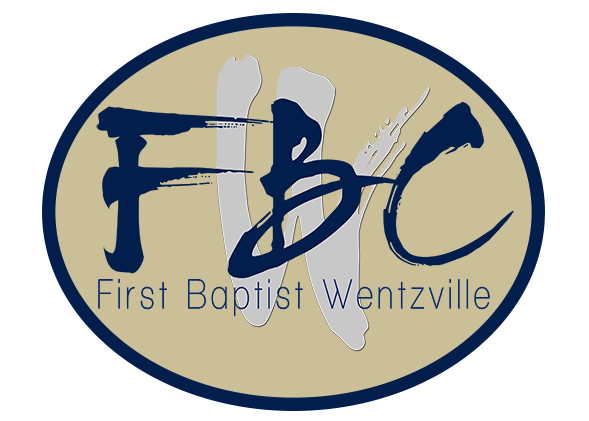
In the remake of the movie The Karate Kid, Jackie Chan says to Jayden Smith, “Your focus needs more focus.” In a recent sermon, Pastor Ralph encouraged us to “Put off the old self and put on the new self” (Ephesians 4:20-24). Put off anger, doubt, depression, discouragement, dread, fear, worry, and all the other ungodly things that can fill us and cloud our thinking. Identify the negative things within us and let them go. Be aware that Satan sees empty spaces in our lives as opportunities. So, just as soon as we have made space, consider how God wants us to fill that space. Put on God’s wisdom, a changed heart, a different attitude, and a determination to serve the Lord.
Pastor Ralph also said in this sermon, “Start with the right priority,” and encouraged us to begin each day with God, even if it is only two or three minutes in the beginning. In April 2017, Lifeway Research asked this question among Americans: How much of the Bible have you personally read? The responses:
- 10% - none of it
- 13% - only a few sentences
- 30% - several passages or stories
- 15% - at least half of it
- 12% - almost all of it
- 11% - all of it
- 9% - all of it more than once
While polls/surveys are not always a reliable source, the number of people who read and apply the scriptures to their lives continues to dwindle. Bible illiteracy is currently called a “scandal,” an “epidemic,” a “crisis,” and a “big problem.” Where do we fall in the above statistics? Do we ever complete our Bible reading for the day, close the Bible, mentally check it off our list, and then totally forget what we just read? Or, has daily Bible reading become a hit or miss event? Or, have we just abandoned it completely and depend on Bible Study and sermons for our once, maybe twice-a-week, spiritual feeding? What can we do to “focus our focus” and “start with the right priority?”
Recently, I received a booklet from Our Daily Bread Ministries entitled “Biblical Meditation: Developing a Heart for God.” The booklet defines biblical meditation, its benefits, and gives suggestions as how to meditate on Scripture. Could biblical meditation enrich our time in God’s Word and increase our desire to learn more about God and what He has written to us? Could it help us begin 2020 with the right priority?
Let’s clarify that biblical meditation is not to be associated with transcendental or western meditation which focuses on inner peace, or emptying our minds, or using our reasoning capacity. Biblical meditation seeks to purge what should not be within us and fill our hearts and minds with scripture, truth, God’s presence, and a commitment to God’s purposes. Listed below are some of the things involved in biblical meditation:
- Come into God’s presence and ask the Holy Spirit to open our hearts and minds to understand, to feel, to hear, and to act based on His Word.
- Submit to God’s presence and truth.
- Focus on God’s presence and God’s thoughts.
- “Ponder” (think about, reflect on) who God is, what He has done.
- Align our present life with God’s will for us.
The challenge is to develop the mental discipline of being able to close off our responsibilities, troubles and worries for specific time intervals. Let our goal be spiritual contemplation that focuses on God, His Word and His thoughts.
Listed below are some of the scriptures that support biblical meditation:
Keep this Book of the Law always on your lips; meditate on it day and night, so that you may be careful to do everything written in it. Then you will be prosperous and successful. (Joshua 1:8)
Blessed is the one who does not walk in step with the wicked or stand in the way that sinners take or sit in the company of mockers, but whose delight is in the law of the Lord, and who meditates on his law day and night. (Psalm 1:1-2)
I remember the days of long ago; I meditate on all your works and consider what your hands have done. (Psalm 143:5).
Suggestions for biblical meditation:
- Begin by selecting a Bible verse (longer portions of scripture or chapters can be used later as we gain experience. (Read the surrounding verses to get the setting and an understanding of the verse.) We might want to read this verse in several translations.
- Write the verse in longhand on a 3x5 card. (Or, highlight it on the Bible app on our phone/computer/other electronic device.
- Memorize the verse.
- Study the text. Contemplate each word. What does it tell us about who God is, His plan, His work? How do we respond to this verse (in prayer, in obedience)?
- Pray for God to give you guidance to understand the text.
- Allow the Holy Spirit to speak to and through the text. Trust the Holy Spirit to help you. He is our secret weapon and will guide, teach, correct, encourage and strengthen us as we meditate on God’s Word.
- Consider the benefits of nighttime contemplations of scripture, particularly just before you go to sleep. Practice beginning and ending each day meditating on God’s Word.
Let’s look at a verse we have already memorized:
The Lord is my Shepherd, I shall not be in want. (Psalm 23:1)
The Lord is—He is the only Lord and ruler over all, creator of the universe, all-powerful, compassionate, forgiving, just, holy, loving, merciful, faithful, righteous, wise, unchanging, unshakable, our comforter, our intercessor, our refuge, sovereign.
My Shepherd—He is MY Shepherd who leads by example, affirms, comforts, corrects, encourages, listens, guides, protects, sets boundaries, provides safety and life, laid down His life for us, knows us, and gives us a sense of belonging.
I shall not be in want—He is our provider. All our needs are supplied by the Lord our Shepherd, be satisfied and thankful for what the Lord our Shepherd has given us. Daily make the decision to trust God to supply our needs.
From this example, go to other favorite chapters or verses such as:
Psalm 121
Proverbs 3:5-6
Isaiah 41:10
Romans 1:16-17
Romans 15:13
Since all Christian forms of meditation are open to God’s presence and perspective, sometimes the things God reveals to us result in prayer to thank God, ask His guidance and wisdom in a particular situation, ask for forgiveness for a particular sin, or ask for His help in determining and developing action steps for what He wants to do in our lives. This is not a lack of focus; it is following the direction of the Holy Spirit. Once we’ve prayed, we can return to our Christian/biblical meditation.
As I worked on this blog, Christian meditation has often been typed “Christian medication” and I’ve had to go back and make corrections. To meditate on God’s Word is, in a sense, “Christian medication” indeed. Prescribed medication can be effective, ineffective and sometimes even deadly. A daily “dose” of spending time in God’s Word, seeking His presence and His will, and getting to know Him better will always be beneficial and effective. Let us resolve to start this year with the right priority by studying God’s Word. Our focus will have more focus.

